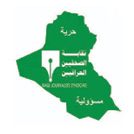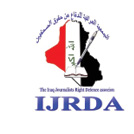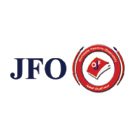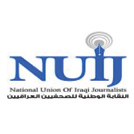oil agreement: conflicting numbers and mutual accusations
الصفحة الرئيسية > تقارير الرصد الإعلامي > oil agreement: conflicting numbers and...
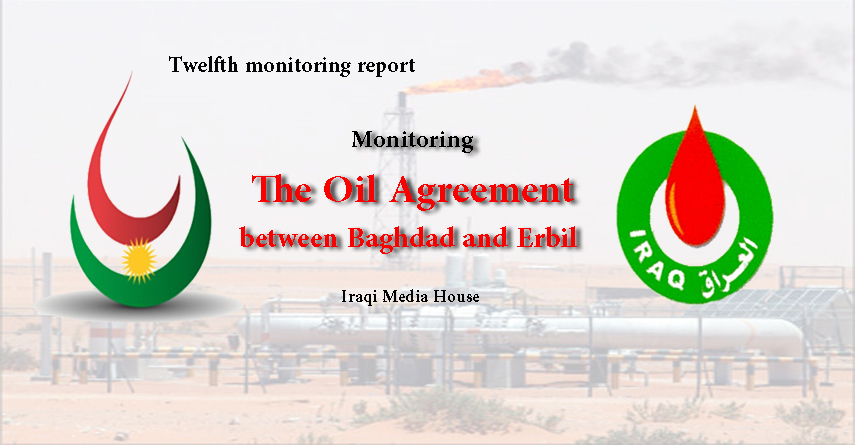
Promoting the democratic values and the principal of transparency the foundation of “The Iraqi Media House” issued a report monitoring “the oil agreement” which was signed in 2nd of December, between the federal government and the Kurdistan Regional Government.
The project will issue a wide report about the transparency of the deal between the two parties within the oil agreement, as well as monitor the credibility of the media in the dissemination of facts to the public opinion about the agreement and the level of its implementation..
and the report concludes that in the end, the various governmental establishment has really neglected the required public service standers when it comes to providing the information needed by the public , and subjected their publishing to political interests and conflicts
Observing governmental sites
Iraqi Media House have monitored the governmental advertisements that have issued by the official sites of the federal government and its counterpart the Kurdistan Regional Government, as well as the Federal Ministry of Oil and the Ministry of Natural Resources in the government of the region.
1- The Ministry of Oil advertised on the second of December 2014, as the minister of oil “Adel Abdul Mahdi” said that The Federal Government and the Kurdistan Regional Government have reached important decisions about the federal budget and the export of oil through the region, and the both sides have solved all the outstanding issues in the federal budget and its law, as well as the subject of the region’s oil. The minister said that the Federal Government and the region’s government agreed to keep meeting and create joint committees to establish the necessary mechanisms and solve all the problems between Baghdad and Erbil, also this agreement would establish a good relationship governed by the constitution.
2- Just four days after the agreement was announced, the Ministry of Oil Issued a clarification on 6th of December about what the news agencies have Picked up According to an English statement has been said by Deputy Prime Minister of the Kurdistan Regional (QubadTalabani) who said: “Kurdistan oil exporting is legal, and This has been mentioned in the last agreement between the Federal Government and the Regional Government”.
The Ministry of oil confirmed in the clarification that there was no written or oral agreement other than what was stated in the Council of Ministers’ official statement. And he stressed that “the Iraqi oil for all Iraqis”.
3-The Oil Ministry announced on 18th of January, 2015, during the visit of Minister of oil to Turkey about its plans to increase its oil exports through Ceyhan to 600000 barrels per day in April 2015.
4- The Ministry of Oil published on the 19th of January, 2015, a statement which explained that: “the agreement with the Region was clear and declared and there is no secret deals in it”. The Minister of Oil explained in the statement that there is no “secret deal” in the agreement between the Federal Government in Baghdad and the Kurdistan Regional Government about exporting the oil. And explained that the meetings with the officials in the region were just to resolve some remaining problems that will be completed after the approval of the budget in 2015.
Abdul-Mahdi said: “ the agreement with Erbil contains to export 550000 barrels through the region’s pipeline to Ceyhan the Turkish port ”. Stressing: “there is no deals or secret treaties in agreement about exporting the oil because the convention was clear and we published the contents of the agreement in A government statement”.
5- During the consultative meeting which was attended by ministers and former oil experts on the first of March, 2015, the Minister of oil explained that the oil agreement with the Kurdistan Region is continues and it is interesting for the country, and there is no unfairness to anyone, not to the South or the North, because everything is under the budget law.
Then he added that the two sides get great benefits from this agreement. Kirkuk returned to work after one year of cessation since March, 2014, because of the sabotage of the oil pipelines. And today, the ministry of Oil became able to export from the Kirkuk fields because of using the Region’s pipelines.
He explained “The agreement includes receipt quotas or important parts of the oil production of the Kurdistan Region as exports. Today the quantities exported doubled, and the total up to Ceyhan is around 400000 barrels, or slightly more, and what SOMO received in Ceyhan exceeds 300 000 barrels, and we’ll go more with the increasing of production of Kirkuk’s wells, with wells Kurdistan will be possible to expand this productions and exports to the limits 550000 barrels,not only that, in order to make up for what we lost in the first few months to make the daily average in 2015 is 550000 barrels a day, and this is helpful to the south and the center of the Region and also it has a great interest in our battle against the terrorist organizations of ISIS”.
6-.In a Journalism conference which held in the Ministry of Oil’s building, on 28thApril, 2015, the minister pointed at the end of the third consultative Meeting with some of ministry’s previousmisters and supervisors, and said “the quantities of oil, we received from Kurdistan Regional, enhanced a lot and raised in comparison with the first and second months of the oil agreement. We’ve received 448,000 barrels of oil, as a daily rate since April 2015. We aim to reach 550 000 barrels of oil in one day as annual rate”. And continued that governorate of Kirkuk started to recover itself because of the oil agreementthat happened between the Regional and the Center. Still, there are some outstanding problems should be resolved through friendly dialogues.
7- Ministry of Oil announces the exported oil’s exports and incomes, depending on the quantities of exports from both south harbors in Basra, and Kirkuk separately, until April 2015. Instead of Kirkuk, the ministry started announcing the quantities of exported oil from, the Turkish harbor Ceyhan.
8- The marketing company SOMO that attached to Ministry of Oil announced on its website the quantity of exported oil, during each mont. SOMO describes the details of the exported quantities from south harbors and from the oil fields in Kirkuk, and the Average selling price of one barrel of oil during one month As shown in the graph below. But SOMO’s data doesn’t describe the quantity of produced or exported oil in the Kurdistan regional. (graph num. 1)
Second: The Ministry of Natural Resources of the Kurdistan Regional Government
1-The Ministry of Natural Resources site posted on 18th of December, 2014 an essay called “Minister Hawrami speaks at launch of the Kurdistan Oil and Gas Year book 2014”
DrHawrami was referring to the recent agreement between the Kurdistan Regional Government (KRG) and the Iraqi federal government, whereby in exchange for receiving its share of the budget and funding for the Peshmerga forces out of the federal defence budget, the KRG will sell 250,000 barrels of oil per day via SOMO (Iraq’s state oil marketing organisation). Minister Hawrami welcomed the deal with the new Iraqi government led by Haidar Al-Abadi and his team.
In 18th of December ,2015 the site above Published that the Minister Hawrami said that stage one of the agreement with Baghdad is not only the oil export but also for the KRG to upgrade the infrastructure for stranded oil in Kirkuk. He said, “I believe we have a real chance of the new chapter with Iraq succeeding.”
In the same conference , Minister Hawrami said that nothing is earmarked in the Iraqi budget for payments to Kurdistan oil producersI
DrRowsch Nouri Shaways, Deputy Prime Minister of Iraq, described the oil financial agreement as a win-win situation. He said, “Driven by the goal of finalising the 2015 budget, despite time constraints it guarantees future revenue-sharing. It increases by 550,000 barrels per day Iraq’s production through oil from the KRG and from Kirkuk, it recognises the KRG oil policy and uses the pipeline passing through KRG territory. The agreement puts Iraq on a path to a more stable and prosperous future.”
2-On 9th of March 2015 the ministry website published an essay called “KRG is on Target with Oil Supply Commitment to the Federal Government as Agreed in the 2015 Federal Budget”
Reminded The Kurdistan Regional Government (KRG) is on schedule with the implementation of its crude oil export deal with the federal government, In line with its commitment to the terms of the federal budget of 2015, the KRG has until the end of February met almost 97% of its agreed supply of crude oil to SOMO in the Turkish port of Ceyhan.
Then the website has attached a table with the essay explained that KRG agreed commitment of oil supply to the federal government.
In the same article has been noted to the meeting attended by Iraqi Minister of Oil and Minister of Natural Resources of the Kurdistan region, On 8th of December when it was agreed on the following:
* In the first three months of 2015, the KRG to transfer to SOMO, 375,000 bpd as an average daily rate.
For the rest of the year, transfers rise to more than 600,000 bpd to complete the average daily rate of 550,000 bpd for the year.
The parties agreed a joint presence in “all the places that the parties have their presence,” especially Ceyhan, Fishkhabur (the Iraq-Turkey border metering station) and Avana.
Adoption of a joint single-pricing policy by both parties for the sale of crude oil in Ceyhan, commencing Feb 1, 2015, in addition to declaring common specifications of the crude oil.
Representatives of KRG to participate in the meetings related to production planning for crude oil and the pricing committee and the opening of respective offices of the two ministries (MNR and MoO) for coordination and follow up.
After the approval of the federal budget of 2015, discussions to be held at the highest level to solve all pending matters related to oil.
At a subsequent meeting on 22-23 of January, the KRG and federal government agreed a detailed delivery schedule for the transfer of the oil volumes to SOMO in Ceyhan, ie the 250,000 bpd from Kurdistan fields and 300,000 bpd from Kirkuk fields.
Then article is presented a summary:-
The KRG remains fully committed to the oil deal with the federal government and will abide by the Budget law of 2015.
It is on track with its promised delivery of KRG-produced oil to SOMO in Ceyhan, and is also facilitating the export of otherwise stranded oil produced by the North Oil Company in Kirkuk.
To date, the federal government has provided the KRG with less than 20% of its share of the budget for January and nothing for February.
4-The ministry noted in an essay published on 13th of May, 2015 that a joint meeting between the Kurdistan Region Council of Ministers’ Presidency and Kurdistan representatives in Baghdad was held in Erbil this morning, May 13, 2015.The participants agreed to:
a- While the KRG has committed to exporting the necessary amount of oil according to the agreement and the 2015 Budget Law, the Federal Government has unfortunately not committed to sending the Kurdistan Region its financial dues.
b-The meeting stressed the need to continue to solve the problems and issues through dialogue and negotiations with the Federal Government.
c- The KRG is committed to the agreement and the Federal Government’s 2015 Budget Law. But if dialogue and negotiations with the Federal Government do not achieve a result and the Federal Government remains in violation of the Budget Law and does not send the KRG’s financial dues, the KRG will (based on item 3 of article 11 of the 2015 Budget Law and according to Law No. 5 of 2013 of the Kurdistan Parliament) consider other solutions to provide the Kurdistan Region with the required budget.
d-The meeting asks the Federal Government to solve the problems and issues between the Federal Government and the Kurdistan Region according to its political program and to be committed to the Constitution and functioning laws.
Third: the head of The Iraqi Council of Ministers’ website
The website has announced the cabinet’s approval on the oil agreement between the Federal Government and the Kurdistan Regional Government on December 2nd, 2014. The site also published a clarification about the most important points of the agreement.
On February 16th, 2015, the site published a story about the reception of the head of the cabinet Haider al-Abadi of the delegation of the Kurdistan Regional headed by the prime minister NechervanBarzani, which stated that during the meeting the budget was discussed and so was the financial dues of the Kurdistan Regional, and also they displayed details about the amount of the produced oil and the expected output from the Regional in 2015 and its relationship with the agreement that already took place and that decreed that the Regional will export the amounts of oil that passed in the budget law.
The importance of addressing technical problems that accompany oil exports from the Regional was emphasized in order to reach the agreed rates
Fourth: the Kurdistan Regional Government’s website
The Regional Government stated several statement a day before signing the oil agreement, for the Government’s site published a story which said on behalf of the prime minister NechervanBarzani: “ we are in Baghdad to put an Iraqi solutions” and also the news of “ Baghdad meetings continues in a positive atmosphere”.
The Government published and extensive report about the agreement signing several hours after it happened, which in it the prime minister clarified the details of the agreement between Erbil and Baghdad, and he said: “the current agreement; is not a final one; however we believe that it is a good start. And there is a group of remaining problems, which should be talked about through this period and we will reach an agreement on them.
And he added that this is a good start for both sides so we will be able in six month or more to process all the problems and obstacles. I can generally say that we are happy with this agreement and we consider at a good gain for all parties.
On January 4th, 2014, the site published a story about the Kurdistan Regional cabinet holding, on Thursday morning December 4th, 2014 their regular meeting headed by the prime ministerNechervanBarzani, and the meeting was about the visit of the Kurdistan Regional Government’s delegation to Baghdad and the agreement reached by both sides has to address the problems between them.
On January 14th, the web site published a report entitled “the assumption of trade and economic movement in the region after the Baghdad and Erbil agreement”.
The report stated: “Thanks to the Governments in Baghdad and Erbil reaching and tentative agreement to address the problems between them, the Kurdistan Regional witnessed the resumption of economic and commercial activities, and markets have seen some kind of recovery”.
On February 15th, the website published and report entitled “both side are committed to the agreement, but Baghdad does not possess sufficient funds to pay for the region”.
NechervanBarzani re-emphasized that both sides are committed to the agreement, and the Iraqi Government side accepted the export schedule and the amount of the quantities exported by the region once every three months, explaining that because of the financial crisis and the lack if the funds; the Iraqi Government is unable to send the Regional budget.
On February 18th, the website published a statement issued after the ministers held the Kurdistan Regional Council, which began to change the way the statement about the oil agreement.
During the meeting; the Prime Minister presented an explanation about the last visit of the Kurdistan Regional Government’s delegation to Baghdad and the talks with the federal Iraqi’s Prime Minister, pointing out the existence of a misunderstanding in the agreement, and it has been treated, was and it was also explained that the Kurdistan Regional is committed with the agreement as stated in the budget law , in the case of one side not committing to the agreement the opposite side will not also.
On February 22nd, the website published “ the joint announcement of the meeting of the Kurdistan Regional Government and Kurds’ representatives in Baghdad”, in which the Kurdistan Regional Government and the Kurds’ representatives in Baghdad reminded about the importance of the execution and the compliance with the law of the budget of 2015, and Kurdistan Regional Government announced that it would like for the federal Government to deal with the rights and the share of the Kurdistan region, according to the budget law of 2015.
On June 10th, the website published a report entitled “NechervanBarzani : if Baghdad has dealt with us as an oil buyer, we would conclude another agreement with them”.
The story said: regarding the agreement Between the Kurdistan Regional and Iraq, NechervanBarzani said to the media: our deal with Baghdad is within the Iraqi budget Law of 2015; and it requires exporting the amount of 550 thousand barrels of pure oil for Iraq, and in return Baghda will send the Kurdistan Regional’s share of the general budget of 2015 which is amounting to a trillion and 200 billion Iraqi Dinars, but unfortunately they did not abide by the agreement so far”.
Adding : if Baghdad wants to deal with the Kurdistan Regional and an oil buyer only, We have no objection, but in this case a new agreement must be concluded with it, in addition to changing some of the paragraphs of the said agreement.
On june 13th, the Regional website published “a joint meeting announcement for the Kurdistan’s representatives in Baghdad and the presidency of the Kurdistan Regional Government”.
It said” with the Kurdistan Regional Government’s obligation to export the required amount of oil according to the said agreement and the budget law of 2015; unfortunately the federal Government did not commit to paying the financial dues to the Kurdistan Regional. This cause a big burden to fall on the Kurdistan Regional economy due to cut off of the Regional share from the budget of 2014 and the war against terrorism with the presence of more than a million and half refugee.
On the same context, the website quoted the deputy head of the Regional Government, QubadTalabani, saying “We cannot wait for Baghdad while it is fouling with the inhabitants of Kurdistan” and he added “We thank the citizens of Kurdistan, they were patient with us so far, and we thank the contractors for stopping their projects a year ago, we have to work on getting Kurdistan through these circumstances”.
Through its website, The Government issued a clarification on the Hawlati newspaper publication in the context of an interview with the official spokesman for the Kurdistan Regional Government; and the spokesman said that there is no hope of the agreement with Baghdad. While the newspaper article did not have any basis and untrue and we announced that the Kurdistan Regional Government believes in the discussion and the mutual understanding in order to address the problems with Baghdad.
It is true that Baghdad did not commit to the agreement that it had with the Kurdistan Regional, however the talks are continuing and we hope that we will be able to solve the problem through communicating with Baghdad.
Oil experts call upon the two parties in the oil agreement to act more transparently
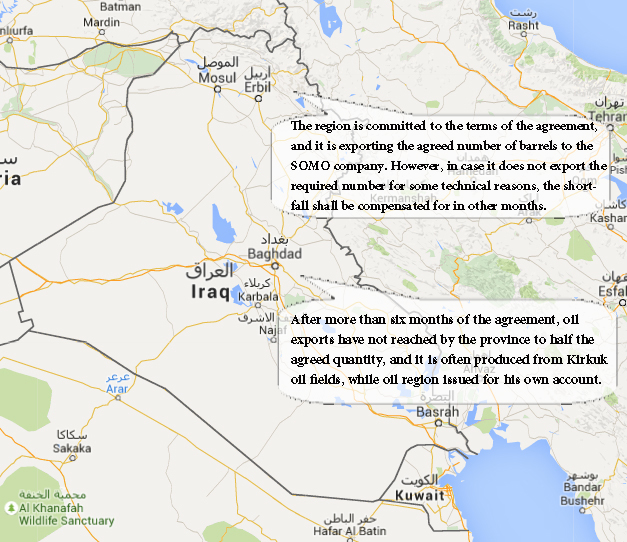 Experts in the field of oil industry called upon the parties in the o oil a agreement that has been signed between the Federal Government and the Kurdistan Regional Government to “ work together with more transparency” after months of attempts to blame each other.
Experts in the field of oil industry called upon the parties in the o oil a agreement that has been signed between the Federal Government and the Kurdistan Regional Government to “ work together with more transparency” after months of attempts to blame each other.
The agreement that has been signed on the 2nd of December, 2014 provides that the Kurdistan Region shall deliver 300,000 bpd from kirkuk oil, and 250,000 bpd from its fields to the Oil Marketing Company (SOMO) of the Federal Ministry of Oil. In return,the region gets 17% of the value of the general budget of Iraq.
Economist Khaled Haidarsaid “this agreement was not the first one between the two sides as many previous agreements existed, but remainedunexecuted since they were never fully implemented.Even the last one did not succeed because of the lack of commitment from the two parties, and because they started to blame each other for responsibility.
Regarding the point of view of the Kurdistan region, Haidar explained that “The region is committed to the terms of the agreement, and it is exporting the agreed number of barrels to the SOMO company>Howeverm in case it does notexporttherequired number for technical reasons, the shortfall shall be compensated for in other months”.
“What is happening right now is that the federal government does not meet its obligations because of lower oil prices in the global market, which means that the government is now in a very embarrassing situation . Therefore, the Kurdistan Regional Government is now in needof money in order to meet its needs which the reasons why it had to sell oil” Haidar added.
Moreover, Haidar mentions that “one of the reasons forthis crisis is the fact that 90% of the Iraqi economy relies on oil revenuesbecause the low oil prices have effected it, so now it has to depend on other things such as agriculture and tourism to be able to solve the financial crisis”.
On his part, Economist Hamza Al Jawaheri said that the oil agreement “does not contain minute details, it is just an agreement in principle”.
He also explained that “The Region did not adhere to the exportation of the required quantity as agreed. On the contrary, it exported much less quantities than required. Nevertheless, the Kurds wish to claim their full share in the budget with complete disregard of the clear deficit in the general budget of the country and the drop in oil prices”.
He further added that “Information about the central government’s oil exports can be obtained through the Ministry of Oil’s website, unlike the Region’s Government which does not have such transparency since it always hides the real figures”.
And added that the region announced that it has exported 17 million barrels in June, 4 million of which it already delivered to the Federal Government. However, the SOMO Company reported that it did not receive anything.
Economist Dr. NabeelJa’far expressed Baghdad’s opinion regarding the agreement by saying that: “It seems that the oil agreement was not meant to succeed on the ground since the Kurdistan Region is exporting large quantities of crude oil for itself while giving small quantities to the Central Government”.
Ja’far also pointed out that: “In June, the Region exported 17 million barrels of oil, 4 million and a half of which were delivered to the Central Government. Therefore, the Region wishes to obtain a 17% share in the budget according to the terms of the agreement. Based on such division of the exports, the Kurdistan Government has violated the signed oil agreement”.
And added that “Six months since the agreement was signed, the Region’s oil exports have not reached half of the agreed-upon quantity, which is usually produced from Kirkuk oil fields, whereas the Region’s oil is exported for the region”.
Journalists: Transparency of The Oil Agreement is Virtually Non-existent!
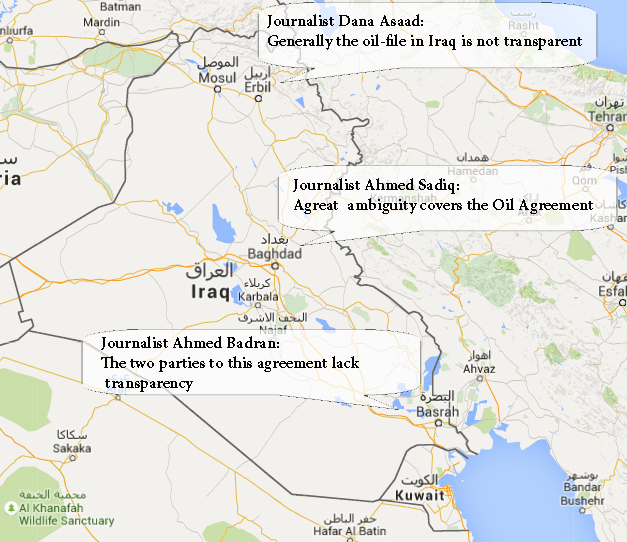 Experts in the field of oil industry called upon the parties in the o oil a agreement that has been signed between the Federal Government and the Kurdistan Regional Government to “ work together with more transparency” after months of attempts to blame each other.
Experts in the field of oil industry called upon the parties in the o oil a agreement that has been signed between the Federal Government and the Kurdistan Regional Government to “ work together with more transparency” after months of attempts to blame each other.
The agreement that has been signed on the 2nd of December, 2014 provides that the Kurdistan Region shall deliver 300,000 bpd from kirkuk oil, and 250,000 bpd from its fields to the Oil Marketing Company (SOMO) of the Federal Ministry of Oil. In return,the region gets 17% of the value of the general budget of Iraq.
Economist Khaled Haidarsaid “this agreement was not the first one between the two sides as many previous agreements existed, but remainedunexecuted since they were never fully implemented.Even the last one did not succeed because of the lack of commitment from the two parties, and because they started to blame each other for responsibility.
Regarding the point of view of the Kurdistan region, Haidar explained that “The region is committed to the terms of the agreement, and it is exporting the agreed number of barrels to the SOMO company>Howeverm in case it does notexporttherequired number for technical reasons, the shortfall shall be compensated for in other months”.
“What is happening right now is that the federal government does not meet its obligations because of lower oil prices in the global market, which means that the government is now in a very embarrassing situation . Therefore, the Kurdistan Regional Government is now in needof money in order to meet its needs which the reasons why it had to sell oil” Haidar added.
Moreover, Haidar mentions that “one of the reasons forthis crisis is the fact that 90% of the Iraqi economy relies on oil revenuesbecause the low oil prices have effected it, so now it has to depend on other things such as agriculture and tourism to be able to solve the financial crisis”.
On his part, Economist Hamza Al Jawaheri said that the oil agreement “does not contain minute details, it is just an agreement in principle”.
He also explained that “The Region did not adhere to the exportation of the required quantity as agreed. On the contrary, it exported much less quantities than required. Nevertheless, the Kurds wish to claim their full share in the budget with complete disregard of the clear deficit in the general budget of the country and the drop in oil prices”.
He further added that “Information about the central government’s oil exports can be obtained through the Ministry of Oil’s website, unlike the Region’s Government which does not have such transparency since it always hides the real figures”.
And added that the region announced that it has exported 17 million barrels in June, 4 million of which it already delivered to the Federal Government. However, the SOMO Company reported that it did not receive anything.
Economist Dr. NabeelJa’far expressed Baghdad’s opinion regarding the agreement by saying that: “It seems that the oil agreement was not meant to succeed on the ground since the Kurdistan Region is exporting large quantities of crude oil for itself while giving small quantities to the Central Government”.
Ja’far also pointed out that: “In June, the Region exported 17 million barrels of oil, 4 million and a half of which were delivered to the Central Government. Therefore, the Region wishes to obtain a 17% share in the budget according to the terms of the agreement. Based on such division of the exports, the Kurdistan Government has violated the signed oil agreement”.
And added that “Six months since the agreement was signed, the Region’s oil exports have not reached half of the agreed-upon quantity, which is usually produced from Kirkuk oil fields, whereas the Region’s oil is exported for the region”.
Notes
1.The file management between Baghdad and the providence is still ongoing in a lot of aspects in the political framework, The technical information absence from transporting in the information material is noticed, which bringing into question the extent of transparency of the both oil agreement parties, which is one of the most serious issues facing Iraq and the Kurdistan region alike.
2.The Iraqi Ministry of Oil and Ministry of Natural Resources are to develop their media performance, including websites and other media outlets, which have not succeeded so far to dispel the ambiguity about the oil agreement and exports and conflicted figures released by the two parties.
3.”Iraqi Media House” confirm that the transparency of the frank communication between the public and the media is the only way available to reduce these issues, through the professional utilities, not political.
“Iraqi media house” believes that the Iraqi media has not lived up to the level of research and investigation wanted to spread the truth, and that a lot of the media tried to compensate for their inability and the weakness of its expertise in the field of economic journalism and in the scope of the survey through referring of the issues to political reasons only, as it went too far in granting the issue a nature which devotes hatred and misunderstanding of the reader and Observers.
Recommend “Iraqi media house,” the organizations concerned to develop the media performances and intensify of courses and workshops for investigative press in general and oil journalism in particular, to create a generation of journalists who are able to study the study calculations and proficient in the language of numbers professionally and impartially to display it to the public opinion.
“Iraqi media house” observes the absence of the Kurdish language in the Iraqi Oil Ministry sites, as opposed to the absence of the Arabic language in the Kurdish Ministry of Natural Resources site, and believes that this behaviors are far from the constitutional context, the fact that the two ministries are responsible for delivering their information to all Iraqi people regardless of their ethnicity. Thus, Iraqi media house recommends the two ministries to open two websites, one in Kurdish for the federal oil and another in Arabic for the Ministry of Natural Resources in the Kurdistan Regional Government.
“House of the Iraqi media,” observes a weakness in media communication between responsible for the Iraqi Oil Ministry media and the media issued in Kurdish language, in contrast to the same weaknesses communicate of Ministry of Natural Resources with the Arabic media.7. “House of the Iraqi media,” observes a weakness in media communication between responsible for the Iraqi Oil Ministry media and the media issued in Kurdish language, in contrast to the same weaknesses communicate of Ministry of Natural Resources with the Arabic media.
“Iraqi media house” finds that the responsibility of the governmental parties in Baghdad and the regional area is not to offload the issue of the oil agreement from its technical and economic content by turning it to an issue of a nature which harms Iraqi components.
“Iraqi Media House” expresses that the monitoring report provided about the oil agreement is basically a media report rather than a technical or economical report, and that the independent media should address, their role, by preparing reports more professional and specialized in the future.









